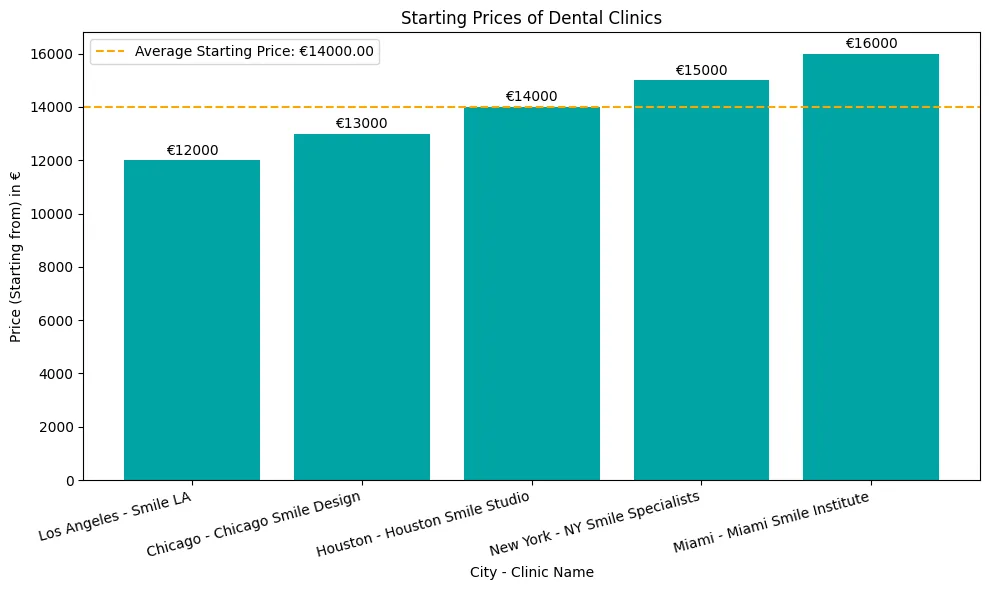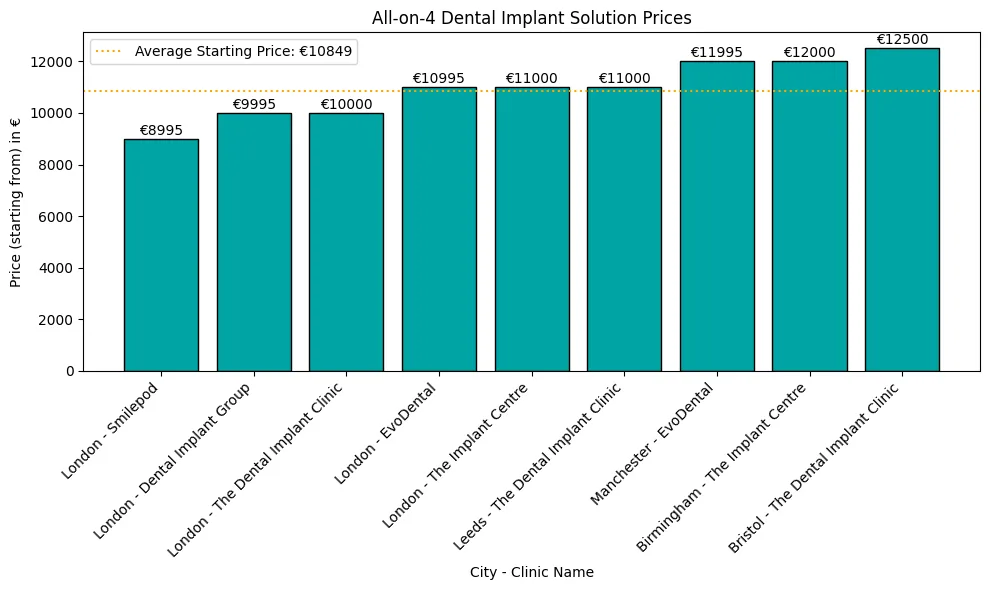Implanti dentar mirëmbajtja është çelësi i suksesit afatgjatë.
Nëse jeni duke pyetur veten se si të parandaloni sëmundjet peri-implantare dhe t'i mbani implantet tuaja të shëndetshme, nuk jeni vetëm; shumë pacientë luftojnë për të kuptuar rëndësinë dhe mënyrën e mirëmbajtjes së implantit dentar.
Çfarë përfshin Mirëmbajtja e Implantit Dentar?
Mirëmbajtja e implantit dentar përfshin kontrolle profesionale çdo 3-6 muaj dhe kujdes të përditshëm në shtëpi. Mirëmbajtja e duhur përfshin larje të butë, pastrim me fill me fill me mjete specifike për implant dhe përdorimin e pastës së dhëmbëve me pak gërryerje. Studimet tregojnë se pajtueshmëria e lartë me terapinë e mirëmbajtjes çon në një shkallë suksesi 90-95% gjatë dhjetë viteve, duke reduktuar ndjeshëm rrezikun e peri-implantitit.

Pse Mirëmbajtja e Implantit Dentar
Mirëmbajtja e implanteve dentare është e rëndësishme për të mbajtur implantet tuaja të shëndetshme dhe funksionale me kalimin e kohës.
Kur pacientët pyesin “sa zgjasin implantet dentare?“, përgjigja varet kryesisht nga mirëmbajtja e duhur – me shkallë suksesi prej 90% deri në 95% gjatë dhjetë viteve për ata që ndjekin protokollet e rekomanduara të kujdesit.
Pa kujdesin e duhur, implantet janë në rrezik të zhvillimit të sëmundjeve peri-implantare, të cilat mund të çojnë në dështimin e implantit.
Mirëmbajtja parandalon këto probleme dhe zgjat jetën e implantit tuaj.
Parandalimi i Peri-Implantitit
Peri-implantiti është një shqetësim i madh për pacientët me implant dentar.
Ky është inflamacion dhe humbje kockore rreth implantit, që mund të çojë në dështim.
Mirëmbajtja luan një rol të madh në uljen e këtij rreziku.
Kontrollet rutinë: Vizitat e rregullta te mjeku juaj stomatologjik ndihmon në zbulimin e hershëm të çdo shenje të peri-implantitit, si inflamacioni ose humbja e kockave (1).
Pastrim Profesional: Mjete të specializuara përdoren për të pastruar rreth implanteve pa i dëmtuar ato për të hequr pllakat dhe biofilmat që mund të shkaktojnë inflamacion (2).
Edukimi i pacientit: Edukimi i pacientëve për praktikat e duhura të higjienës orale është i rëndësishëm për të parandaluar peri-implantitin. Njohja e rëndësisë së kujdesit të përditshëm mund të zvogëlojë rreziqet (5).
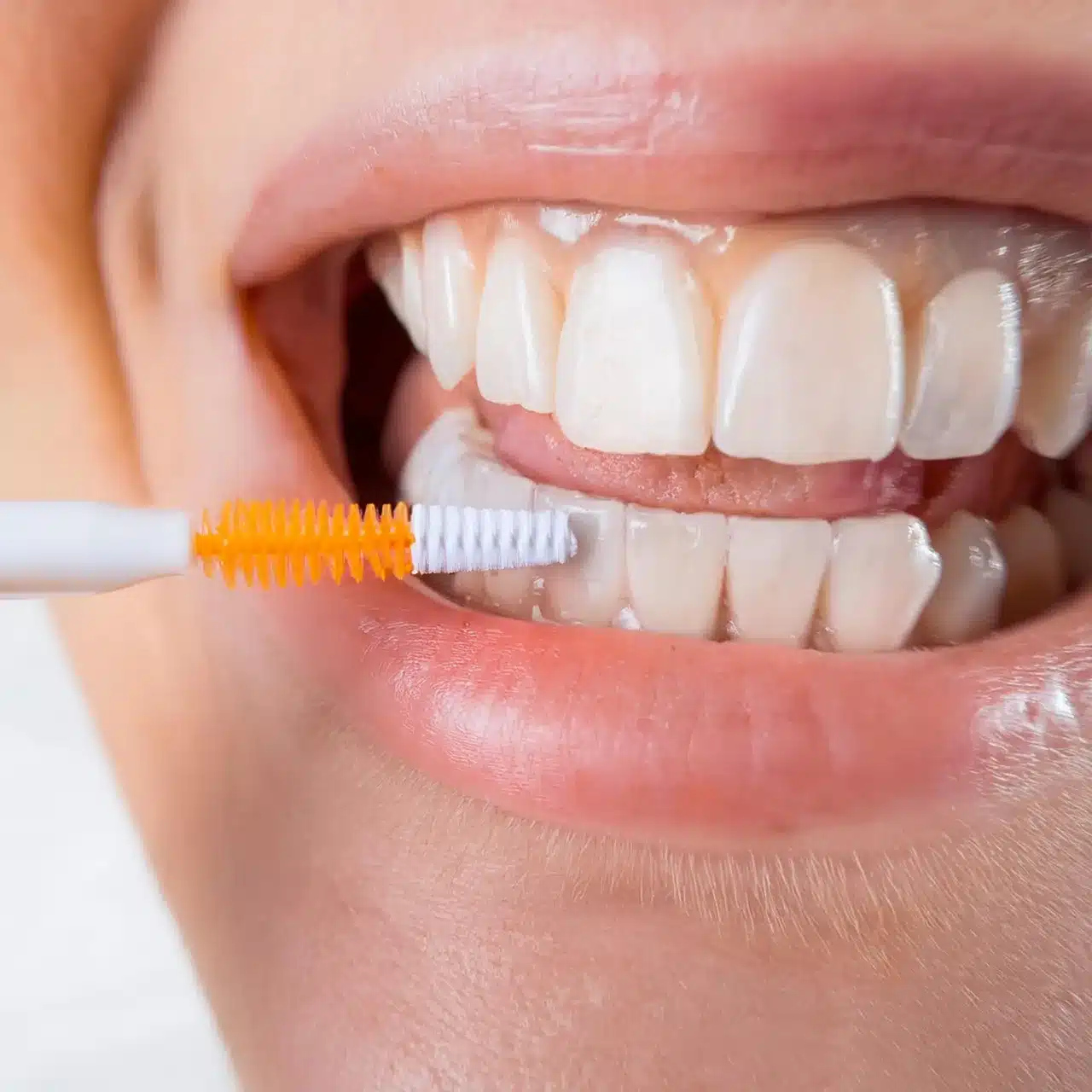
Sukses Afatgjatë
Suksesi afatgjatë i implanteve dentare varet nga mirëmbajtja e rregullt.
Studimet tregojnë se pacientët që ndjekin një orar mirëmbajtjeje kanë shkallë më të lartë suksesi.
Normat e larta të pajtueshmërisë: Pacientët që marrin pjesë rregullisht në takimet e mirëmbajtjes kanë shkallë suksesi 90-95% gjatë 10 viteve (1).
Vlerësime Gjithëpërfshirëse: Çdo vizitë përfshin një ekzaminim të plotë të implantit dhe indeve përreth për të adresuar çdo problem të mundshëm (3).
Terapia mbështetëse: Duke qenë në terapinë mbështetëse të implantit mund të zvogëlojë komplikimet dhe të zgjasë jetën e implantit (4).
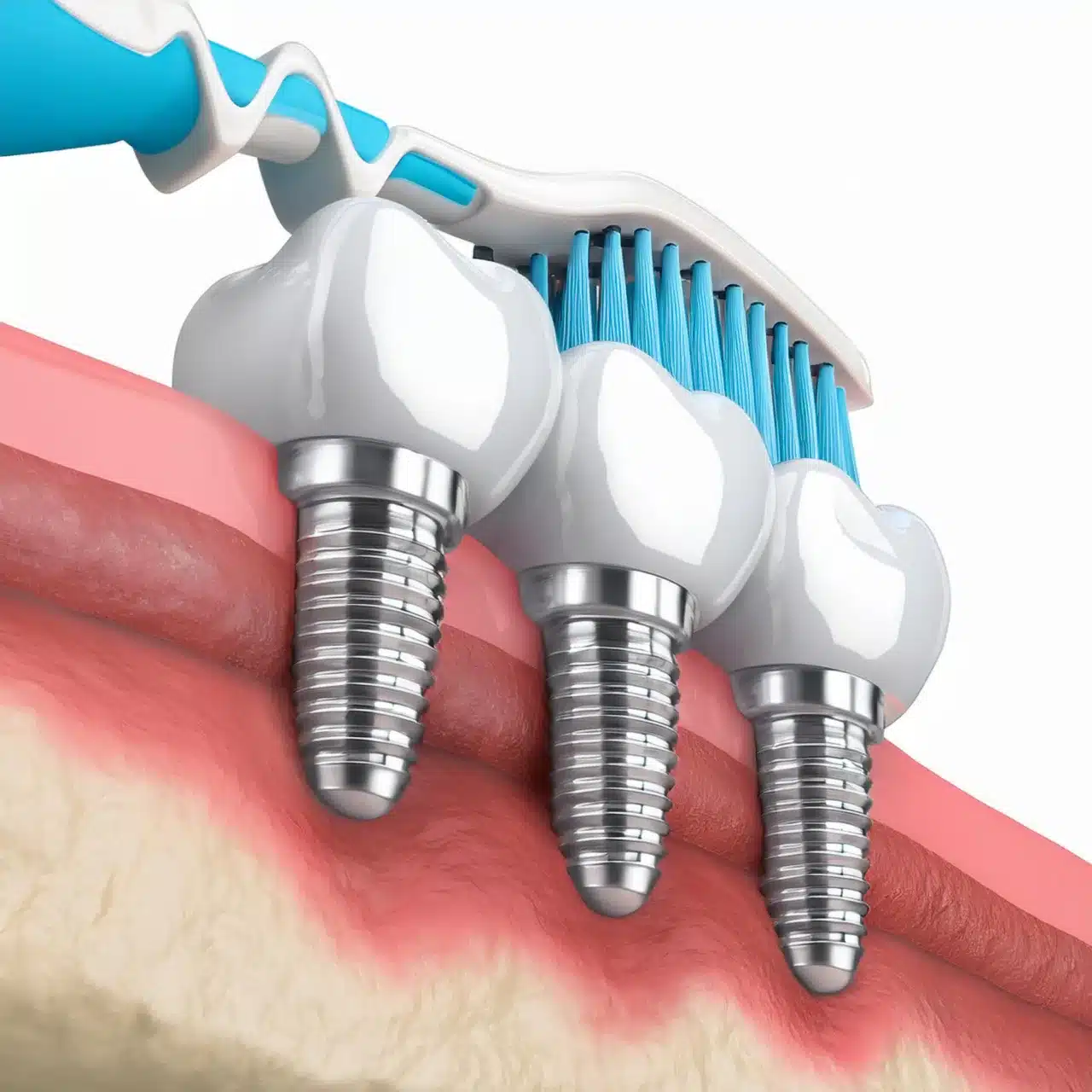
Procedurat e Mirëmbajtjes Profesionale të Implantit Dentar
Mirëmbajtja profesionale e implanteve dentare është e rëndësishme për shëndetin dhe jetëgjatësinë e implantit.
Këto procedura ndihmojnë në zbulimin e hershëm dhe parandalimin e komplikimeve.
Intervista e pacientit dhe ekzaminimi klinik
Një intervistë me pacientin dhe ekzaminim klinik janë të nevojshme.
Kontroll shëndetësor: Kontrolli për ndryshime të përgjithshme shëndetësore që mund të ndikojnë në stabilitetin e implantit (1).
IInspektimi i impiantit: Kontrollimi për inflamacion, gjakderdhje ose lëvizshmëri për të kapur shenjat e hershme të problemeve (2).
Instrumentimi dhe heqja e biofilmit
Pastrimi rreth implanteve është i rëndësishëm.
Mjete speciale: Përdorimi i instrumenteve jo metalike për të mos dëmtuar sipërfaqen e implantit gjatë heqjes së pllakës (3).
Pastrim me ultratinguj: Përdorimi i pajisjeve tejzanor me këshilla të veçanta për pastrim të plotë (4).
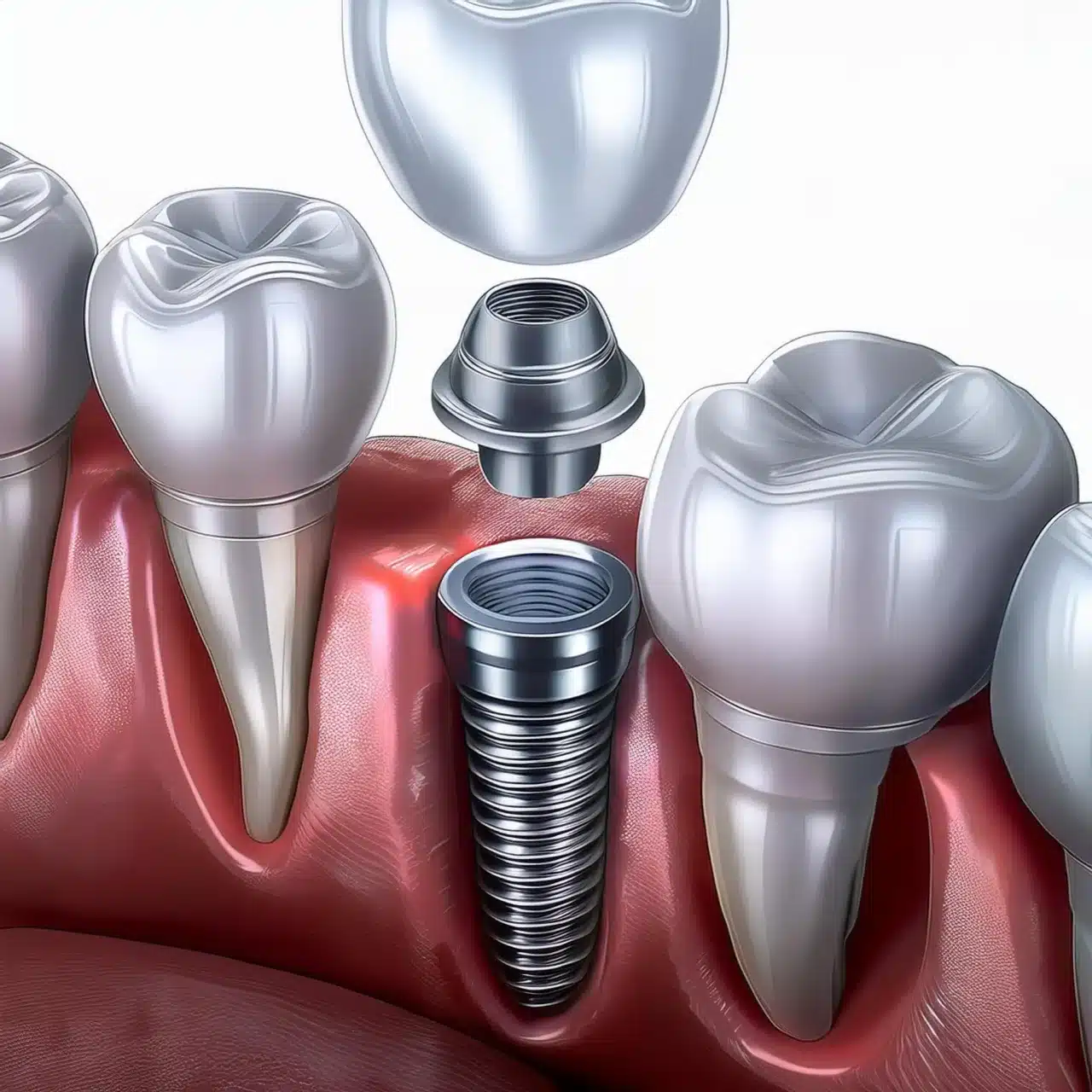
Radiografitë
Radiografia është e rëndësishme për shëndetin e implanteve.
Imazhe bazë: Marrja e radiografive fillestare për të gjurmuar ndryshimet e kockave me kalimin e kohës (5).
Përditësimet e rregullta: Marrja e radiografive periodike për të kapur humbjen e hershme të kockave (2).
Kujdesi në shtëpi për mirëmbajtjen e implantit dentar
Mirëmbajtja e implanteve dentare nuk ka të bëjë vetëm me vizitat profesionale; Kujdesi në shtëpi është po aq i rëndësishëm.
Praktikat e përditshme mund të zgjasin jetën dhe shëndetin e implantit.
Praktikat e higjienës orale
Higjiena orale në shtëpi është baza e mirëmbajtjes së implanteve.
Pastrimi i përditshëm me furçë dhe fill me fill: Përdorni një furçë dhëmbësh me qime të buta dhe pastë dhëmbësh jo gërryes për të pastruar rreth implantet. Përdorimi i dhëmbëve me fill çdo ditë heq pllakat dhe grimcat e ushqimit që mund të shkaktojnë peri-implantitis (1).
Furça ndërdhëmbore: Këto janë të shkëlqyera për pastrimin e hapësirave midis implanteve dhe dhëmbëve ngjitur për të hequr pllakën (2).
Larës antimikrobik i gojës: Shpëlarja me gargarë antimikrobike mund të reduktojë bakteret dhe të parandalojë inflamacionin rreth implanteve (3).

Edukimi dhe Pajtueshmëria e Pacientit
Edukimi i pacientit është çelësi për mirëmbajtjen e suksesshme të implantit.
Rreziqet: Pacientët duhet të dinë rreziqet e higjienës së dobët orale, peri-implantitit dhe dështimit të implantit (4).
Planet e Kujdesit të Personalizuar: Këshillat e personalizuara për higjienën orale mund të përmirësojnë pajtueshmërinë dhe rezultatet e pacientit (5).
Feedback: Pacientët duhet të raportojnë çdo shqetësim ose ndryshim në implantet e tyre për t'u kapur herët dhe për të parandaluar komplikimet (4).
Frekuenca dhe Kohëzgjatja
Vizitat e mirëmbajtjes janë të rëndësishme për suksesin afatgjatë të implanteve dentare.
Këto vizita ndihmojnë në zbulimin e hershëm të problemeve dhe për të mbajtur implantet në gjendje optimale.
Planifikimi dhe Koha
Planifikimi i duhur i vizitave të mirëmbajtjes është i rëndësishëm për të parandaluar komplikimet.
Intervale tre mujore: Studimet rekomandojnë vizita mirëmbajtjeje çdo tre muaj për të monitoruar dhe menaxhuar shëndetin e implantit (1).
Kohëzgjatja e vizitave: Çdo vizitë duhet të jetë rreth një orë për të vlerësuar implantin dhe indet përreth (2).
Oraret e personalizuara: Disa pacientë mund të kenë nevojë për vizita më të shpeshta në varësi të faktorëve individualë të rrezikut (3).
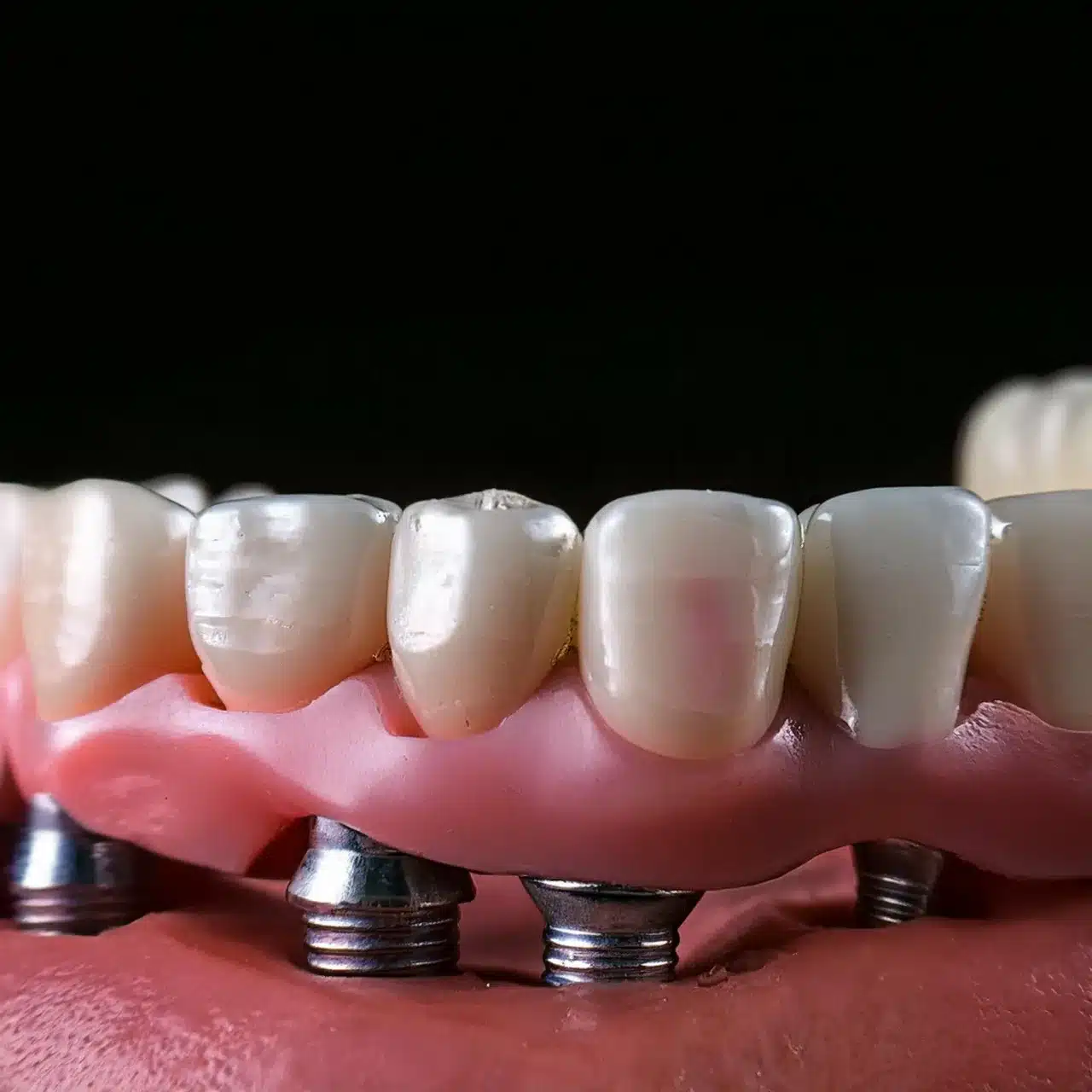
Vlerësimi
Një vlerësim i plotë gjatë vizitave të mirëmbajtjes është i rëndësishëm për jetëgjatësinë e implantit.
Monitorimi i shëndetit: Kontrolle të rregullta për të gjurmuar ndryshimet në shëndetin oral dhe të përgjithshëm që mund të ndikojnë në stabilitetin e implantit (4).
Ekzaminimi i detajuar: Çdo vizitë kontrollon për shenja inflamacioni, lëvizshmërie ose anomali të tjera që mund të tregojnë komplikime (5).
Reagimi i pacientit: Pacientët duhet të inkurajohen të raportojnë çdo shqetësim ose ndryshim për të përshtatur mirëmbajtjen sipas nevojave individuale (4).
Të Procesi dhe afati kohor i implantit dentar hap pas hapi përfshin disa faza, duke përfshirë vendosjen e implantit, shërimin dhe osseointegrimin, vendosjen e abutmentit dhe montimin e kurorës.
Çdo fazë është kritike për suksesin afatgjatë të implantit.
Procesi fillon me futjen kirurgjikale të shtyllës së implantit në kockën e nofullës, e ndjekur nga një fazë shërimi ku implanti integrohet me kockën.
Pasi shërimi të përfundojë, mbështetësja ngjitet dhe kurora e bërë me porosi vendoset në abutment.
Ky proces siguron që implanti dentar të jetë i qëndrueshëm dhe funksional, duke siguruar një zëvendësim të dhëmbëve me pamje natyrale dhe ndjesi.
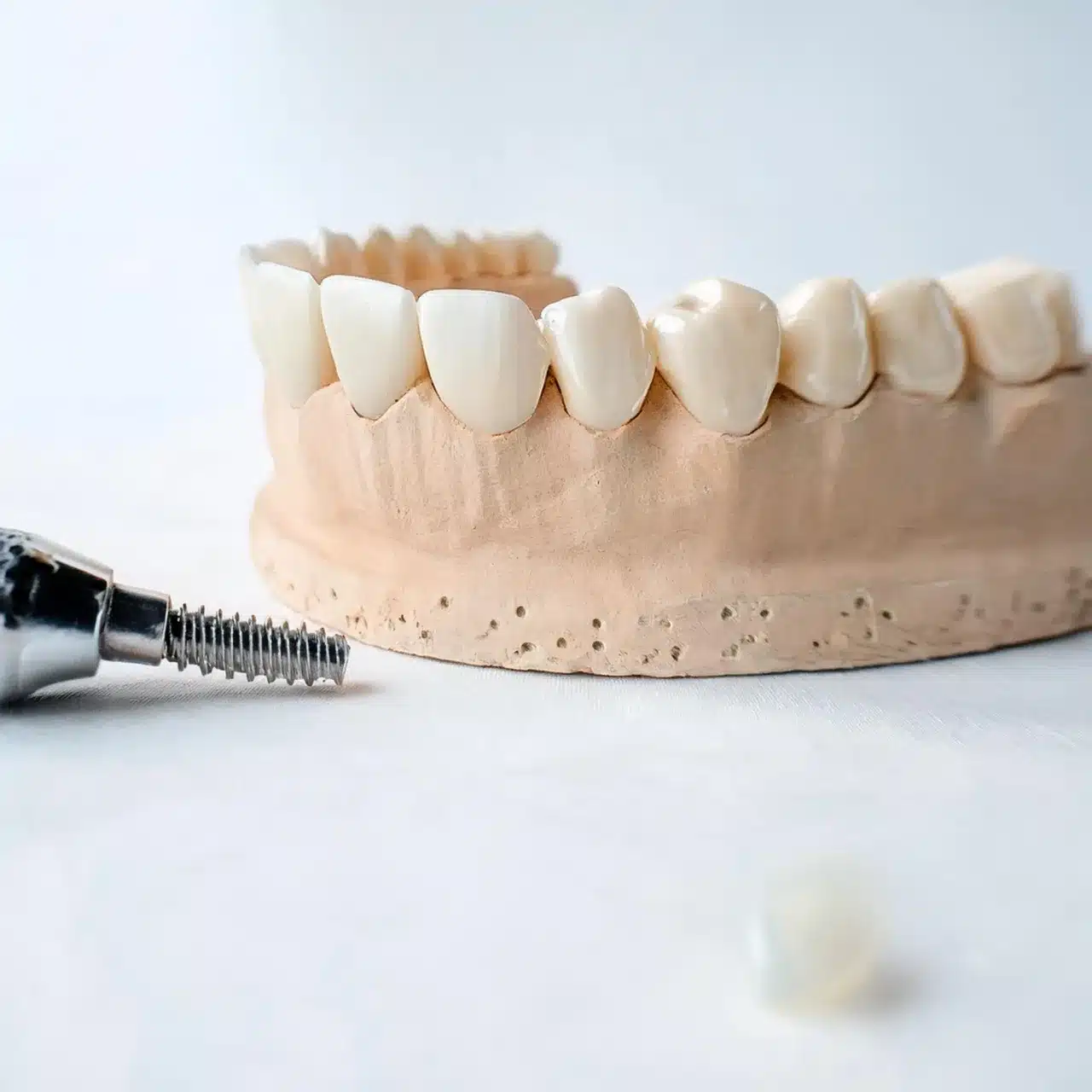
Përfundim & Çështje kryesore
Pikat kryesore:
Mirëmbajtje e rregullt: Vizitat e mirëmbajtjes profesionale çdo tre muaj janë thelbësore për të parandaluar komplikimet dhe për të zgjatur jetën e implantit dentar (1).
Kujdesi në shtëpi: Higjiena e përditshme orale, duke përfshirë pastrimin me furçë dhe fillin me fill, është e rëndësishme për të ruajtur shëndetin e implantit dhe për të parandaluar peri-implantitin (2).
Pajtueshmëria e pacientit: Pajtueshmëria e lartë me protokollet e mirëmbajtjes redukton rrezikun e sëmundjes periimplantare deri në 30% për pacientët në përputhje (3).
konkluzioni:
Mirëmbajtja e implantit dentar është një përpjekje ekipore midis kujdesit profesional dhe kujdesit në shtëpi.
Duke ndjekur oraret e rekomanduara të mirëmbajtjes dhe rutinat e kujdesit në shtëpi, pacientët mund të gëzojnë përfitimet afatgjata të implanteve të tyre dentare.
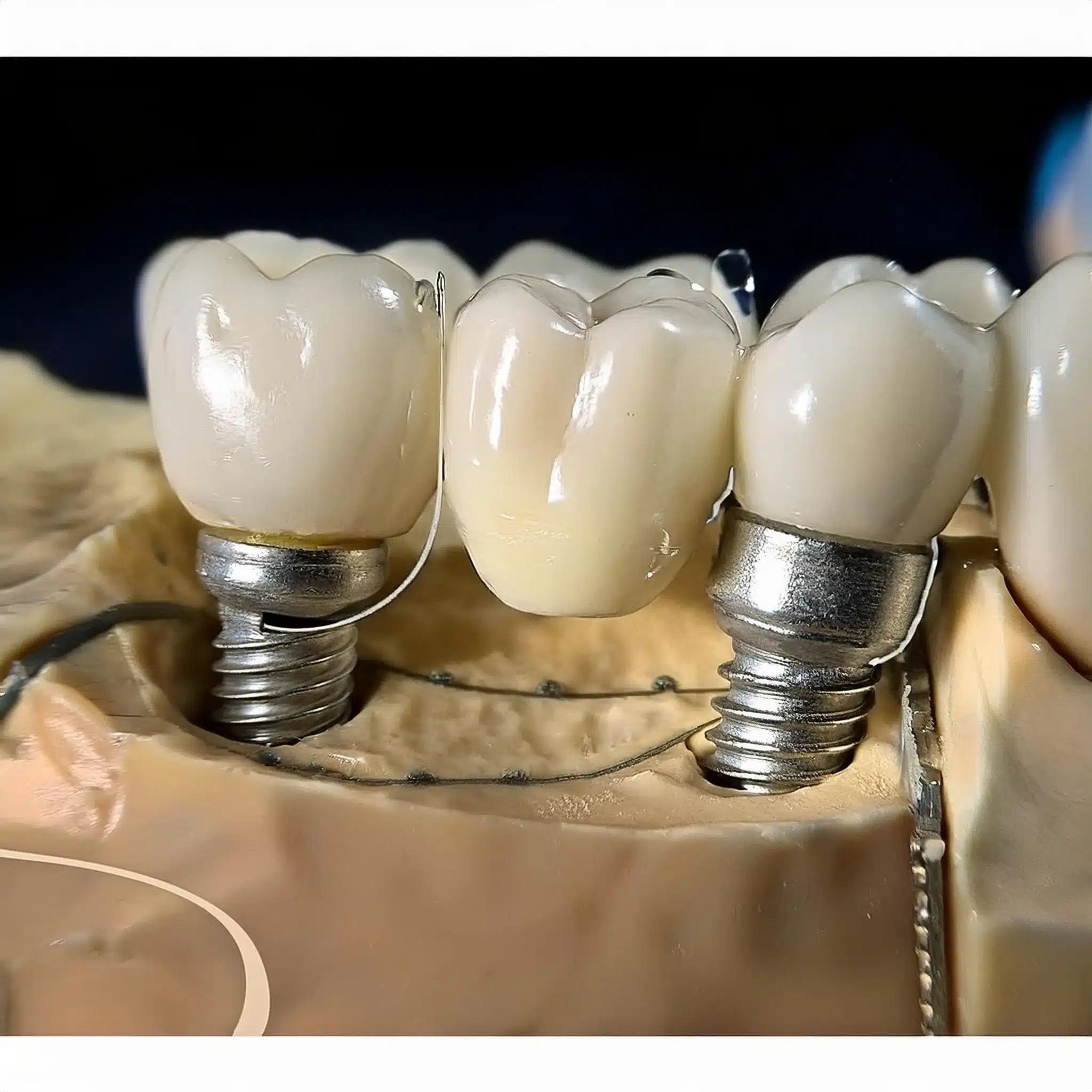
FAQ
Referencat
- Gulati M, Govila V, Anand V, Anand B. Mirëmbajtja e implantit: Një përditësim klinik. Njoftimet Int Sch Res. 2014:908534. doi:10.1155/2014/908534.Neni: Mirëmbajtja e implantit: Një përditësim klinik
- Frisch E, Vach K, Ratka-Krueger P. Ndikimi i terapisë mbështetëse të implantit në sëmundjet peri-implantare: Një studim retrospektiv 7-vjeçar. J Clin Periodontol. 2020;47:101-109.Neni: Ndikimi i terapisë mbështetëse të implantit në sëmundjet peri-implantare
- Mitschke J, Peikert SA, Vach K, Frisch E. Terapia me implant mbështetës: një studim i ardhshëm 10-vjeçar i normave të pajtueshmërisë së pacientit dhe faktorëve ndikues. J Clin Med. 2020; 9: 1988. doi:10.3390/jcm9061988.Neni: Terapia mbështetëse e implantit: një studim i ardhshëm 10-vjeçar
- Monje A, Wang HL dhe Nart J. Shoqata e pajtueshmërisë me terapinë e mirëmbajtjes parandaluese dhe sëmundjes peri-implantuese: një studim ndër-seksional. J Paradontol. 2017;88:1030-1041.Neni: Shoqata e pajtueshmërisë me terapinë e mirëmbajtjes parandaluese dhe sëmundjes peri-implantare
- Monje A, Aranda L, Diaz KT, Mlarcon MA, Ragramian RA, Wang HL, Catena A. Ndikimi i terapisë së mirëmbajtjes për parandalimin e sëmundjeve peri-implantare: një rishikim sistematik dhe meta-analizë. J Dent Res. 2016;95(4):372-379.Neni: Ndikimi i terapisë së mirëmbajtjes për parandalimin e sëmundjeve peri-implantare


